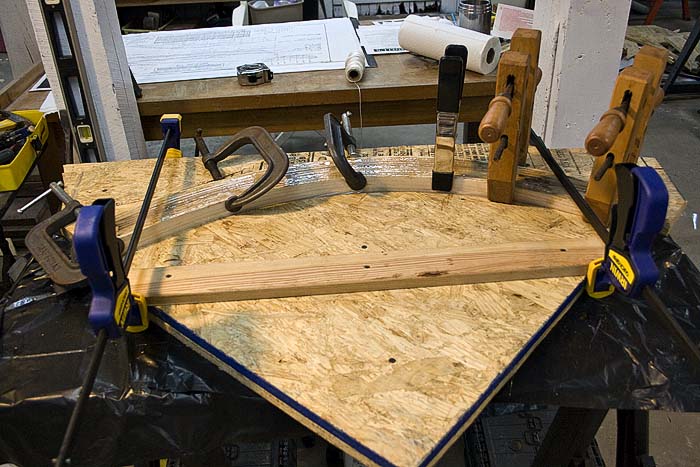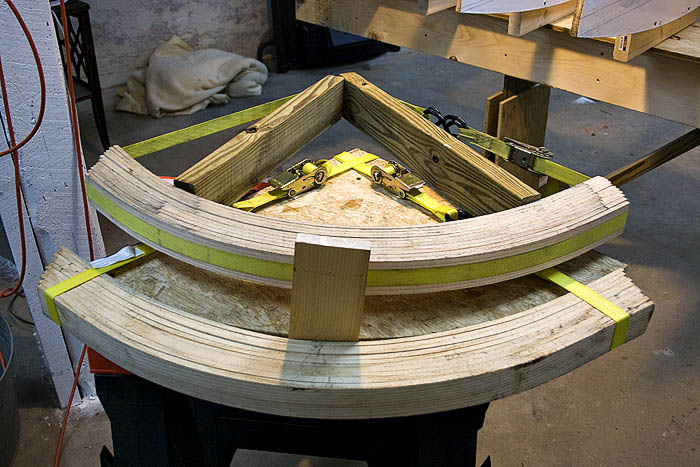First strip planks in place
After two months of careful preparation, it’s crazy how fast the planking goes up, and how quickly what was only abstract art becomes a physical boat.
An extra set of hands, like those of a daughter home from college, really help. When those hands have to go back to school, you have to improvise. These snug fitting “fingers” hold the gluey strips in place as you work your way back with the staple gun.








